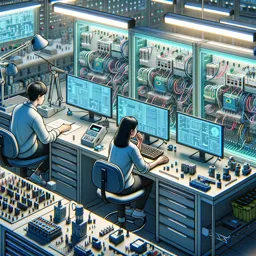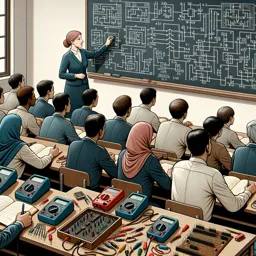Introduction to Renewable Energy
Renewable energy is transforming the power industry by providing cleaner, more sustainable alternatives to fossil fuels. For professionals—especially electricians—understanding renewable energy technologies is crucial to staying competitive as the demand for green energy solutions continues to rise.
Main Types of Renewable Energy
- Solar Power: Generates electricity from sunlight using photovoltaic cells.
- Wind Power: Converts wind’s kinetic energy into electricity using turbines.
- Hydropower: Produces energy from the movement of water in rivers or dams.
- Biomass: Transforms organic material into electricity, heat, or biofuels.
- Geothermal Energy: Harnesses heat from the Earth’s core for direct heating or power generation.
The Role of Electricians in Renewable Energy
Electricians play a crucial role in the installation, maintenance, and troubleshooting of renewable energy systems. Their work may involve wiring solar panels, connecting wind turbines to smart grids, or ensuring safe electrical networks in hydropower facilities. Specialized training in renewable energy helps electricians develop expertise in:
- System design and integration
- Energy storage solutions
- Smart grid technologies and automation
- Compliance with local and international standards
Why Pursue a Course in Renewable Energy?
A professional course in renewable energy offers electricians the opportunity to:
- Expand their career prospects
- Stay updated with cutting-edge industry practices
- Contribute to sustainable and eco-friendly technologies
- Meet the increasing demand for skilled green energy professionals
Conclusion
As the world embraces sustainability, electricians with renewable energy expertise are in high demand. Enrolling in a renewable energy course is a powerful investment in your career, enabling you to work on projects that shape the future of energy.































